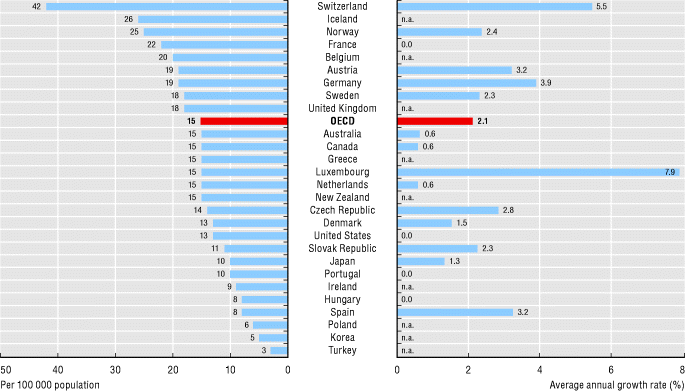International Mental Health
We have excellent mental health provision in the UK and it is good to remember this! There are some countries in the world where there is almost no provision at all. The table below shows the number of psychiatrists per head of population in europe. In the UK there are 18 psychiatrists per 100000 people. In Bangladesh, there is one psychiatrist per 1 million people, and as few as one per 5 million in some parts of sub-sarharan African.

[Table from
this website] [and it is much worse in some areas]
The good news is that things are improving. Governments and the World Health Organisation [WHO] are working along side faith groups [especially churches] to build knowledge, skills and support.
The WHO have 4 key projects - read more at
http://www.who.int/mental_health/policy/en/index.html . This work is supported by bodies such as the Royal College of Psychiatrists in the UK who help with visits from UK based psychiatrists - though this has to be handled sensitively and be appropriate to the local culture.
-
Developing better services [building on GP services with local psychiatric nurses and - where possible - psychiatrists].
-
Targetting human rights abuses [in some countries people with mental health problems go to prison instead of hospital]
-
Dealing with the complex interplay of mental illness, poverty and development
-
Developing better lives for people with mental health problems - jobs, housing, anti-stigma
The Royal College of Psychiatrists have published this book to help build capacity in areas 'where there is no psychiatrist':
http://www.rcpsych.ac.uk/publications/books/rcpp/1901242757.aspx

The role of churches
If you start trying to do development work in many parts of the world, you quickly realise that the influence of Governments and officaldom does not strtech much beyond the capital and the cities. However, the church often has good networks and communications into the farthest reaches of the country. Now is the time to thank the missionary fathers for their zeal, even if today we might critique their cultural methods.
Health projects based on churches have a much better sucess than those funded through often corrupt governments or un-networked NGOs. This also applies to mental health projects. One good example is here -
http://www.mercyships.org.uk/mental-health-training-seminar Rob Waller, 10/10/2013